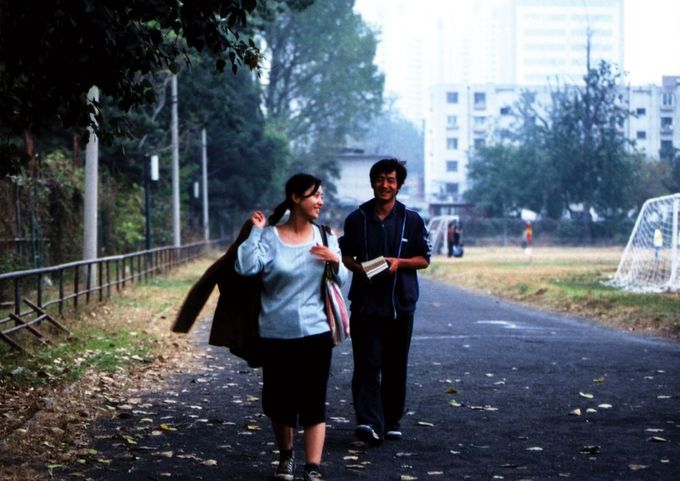이 글을 쓰는 지금, 제59회 칸영화제(5월17∼28일)가 이제 막 본격적으로 시작하려고 하는 즈음이라 올해 영화선정의 질에 대해 전체적인 판단을 내리기에는 아직 이르다. 그러나 만약 화성인이 크루아제 거리에 도착해 인쇄된 프로그램을 본다면 세계영화의 지역적 균형에 대해선 다소 이상한 생각을 갖게 될지도 모른다.
비록 어떤 영화제들은 월드 프리미어를 요구하면서 영화 개봉을 늦출 만한 힘을 갖고 있긴 하지만, 모든 영화제들은 대체적으로 제때에 맞춰 상영 가능한 영화들에 따라 결정할 수밖에 없다. 칸은 어떤 다른 영화제보다 늘 자신이 원하는 대부분의 영화들을 가져간다. 우려되는 측면은 참석한 4천명의 기자들 대부분이- 한해에 참석하는 다른 영화제가 별로 없는 이들인데- 칸의 선정작을 세계 제작 현황의 리트머스 시험지로 사용한다는 것이다.
올해 프로그램을 보고나서 우리의 화성인은 당연히 미국영화에 대해선 어느 정도 공평한 관점을 갖게 될 것이다. 좀더 지적이고 질적으로 괜찮은 영화들(<마리 앙투아네트> <바벨>)과 구별되는 크기만 하고 속은 텅 빈 스튜디오 작품들(<다빈치 코드> <엑스맨: 최후의 전쟁> <파이널 챕터>). 물론 칸의 작가영화에 대한 애호로 인해 전자에 비해 후자의 비율이 떨어지기는 한다.
화성인은 프로그램을 언뜻 보면서(경쟁에 오른 50%가 유럽영화인 것을 보며) 유럽 영화제작이 현재 가장 흥미롭다고 결론내릴 것이며, 아시아 전 지역에서(실제로는 프랑스와 공동제작한) 단 한 작품(로우 예 감독의 <여름 궁전>)만 경쟁에 오른 것과 나머지 90% 섹션에 선정된 대여섯편을 보고 아시아는 별로 관심을 가질 만한 지역이 아니라고 결론내릴 것이다.
보통 칸영화제를 지배하는 프랑스영화 다음으로, 이탈리아영화가 공식섹션에 단독으로 4편이나 올릴 정도로 그렇게 강세인가? 사실 이탈리아영화는 형편없어진 지 오래다. 몇달 전 베를린영화제에서 이탈리아영화는 거의 보이지도 않았다. 그러나 우연히 칸이 제일 선호하는 감독들(난니 모레티, 마르코 벨로치오 등) 몇명이 칸에 내놓을 새로운 영화를 준비한 것이다.
아시아의 경우는 심지어 더 이상하다. 일본은 이제 막 알려지기 시작한 감독이 만든 소규모의 작품이 선정됐고, 홍콩은 상업공포영화(<리사이클>)가, 대만은 대규모 예산의 귀신영화(<실크>), 한국은 소규모의 독립영화(<용서받지 못한 자>) 한편과 대규모 예산 괴물영화(<괴물>) 한편이 선정됐다. 이들 중 어느 것도 경쟁에 포함되기에 적합하다 판단되지 않았던 것이다.
칸이 제일 선호하는 지역 중 하나인 이란은 이번해 영화제에서 완전히 사라져버렸다. 이유는? 이란이 더이상 흥미로운 영화를 만들지 않아서가 아니라 베를린이 일찍 선제 공격을 해서 가치있는 거의 모든 영화를 가져가버렸기 때문이다.
대부분의 영화제 선정자들은 자기들이 세계영화의 균형있는 시각을 드러내야 한다는 어떤 의무도 느끼지 않는다고 말할 것이다. 그러나 기자들의 편집부장들은 “주제가 있는” 기사를 좋아하고 어느 영화제에서든 가장 쉬운 이야기는 선정작의 구성을 보는 일이다.
그래서 올해 칸의 선정에 낙담한 한국 독자들은 아시아영화들이 가을에 있을 영화제, 특히 베니스에서 컴백을 달성할 것 같다는 사실에 위안을 삼을 것이다. 이유는? 칸에서 거부한 아시아영화들은 이미 다른 영화제들이 발빠르게 가져가기 시작했기 때문이다. 그리고 베니스는 현재 아시아 전문가인 마르코 뮐러가 프로그래밍하고 있기 때문이다. 아시아엔 좋은 소식이긴 하지만, 기복 심한 세계영화 제작을 생각해봤을 때 실제적 진실에서는 상당히 멀리 있는 것이다.
As I write this, the 59th Cannes Film Festival (17-28 May) is only starting to get into full swing, and it's still too early to reach any general verdict on the quality of this year's selection. But if a Martian landed on the Croisette and took a look at the programme on paper, he would get a rather strange idea of the regional balance of international cinema.
Though some festivals have the power to delay a film's release by demanding a world premiere, all are largely hostage to what is available at the time - and Cannes, more than any festival, can usually get most of the titles it wants. The worrying aspect is that many of the 4,000 journalists who attend - many of whom go to few other festivals during the year - use Cannes' selection as a litmus test on the state of world production.
Looking at this year's programme, our Martian would get a reasonably fair view of U.S. cinema: large, inane studio productions ("The DaVinci Code," "X-Men: The Final Chapter") separated from more intelligent, quality fare ("Marie Antoinette," "Babel"), though the proportion of the former to the latter is skewed by Cannes' liking for auteurist movies.
He would also conclude, from the sheer amount in the programme, that European filmmaking is currently the most interesting (50% of the movies in Competition come from that region), while the whole of Asia, with only one film in Competition (actually a coproduction with France) and only half a dozen titles among the remaining 90, is of very minor interest.
Aside from France, which as usual dominates the festival, is Italian cinema so strong that it deserves four features in the Official Selection alone? In fact, Italian production has long been in the toilet - at the Berlin festival, a few months earlier, it was virtually non-existent - but by chance several of Cannes' favourite directors (Nanni Moretti, Marco Bellocchio) happened to have new films ready.
The case of Asia is even stranger. Japan is represented by only one tiny production by a little-known director; Hong Kong by a commercial horror movie ("Re-Cycle"); Taiwan by a big-budget ghost movie ("Silk"); and South Korea by one tiny independent production ("The Unforgiven") and a big-budget monster movie ("The Host"). None of these was thought fit to include in Competition.
One of Cannes' favourite territories, Iran, is entirely absent from the festival this year. The reason? Not that Iran has stopped making interesting movies but that Berlin made a pre-emptive strike earlier on and grabbed almost everything of value.
Most festival selectors will tell you that they feel under no obligation to present a balanced view of world cinema. But journalists' editors love "theme" stories and the easiest theme story from any festival is one that looks at the makeup of the selection.
So, Korean readers who are disheartened by Cannes' selection this year can take succour in the fact that Asian cinema is likely to make a "comeback" at the autumn festivals, Venice in particular. The reason? Cannes' Asian rejects are already starting to be snapped up by other festivals and Venice is currently programmed by Marco Mueller, an Asian specialist. Good news, then, for Asia - but still a long way from the real truth about the ups and downs in worldwide production.




